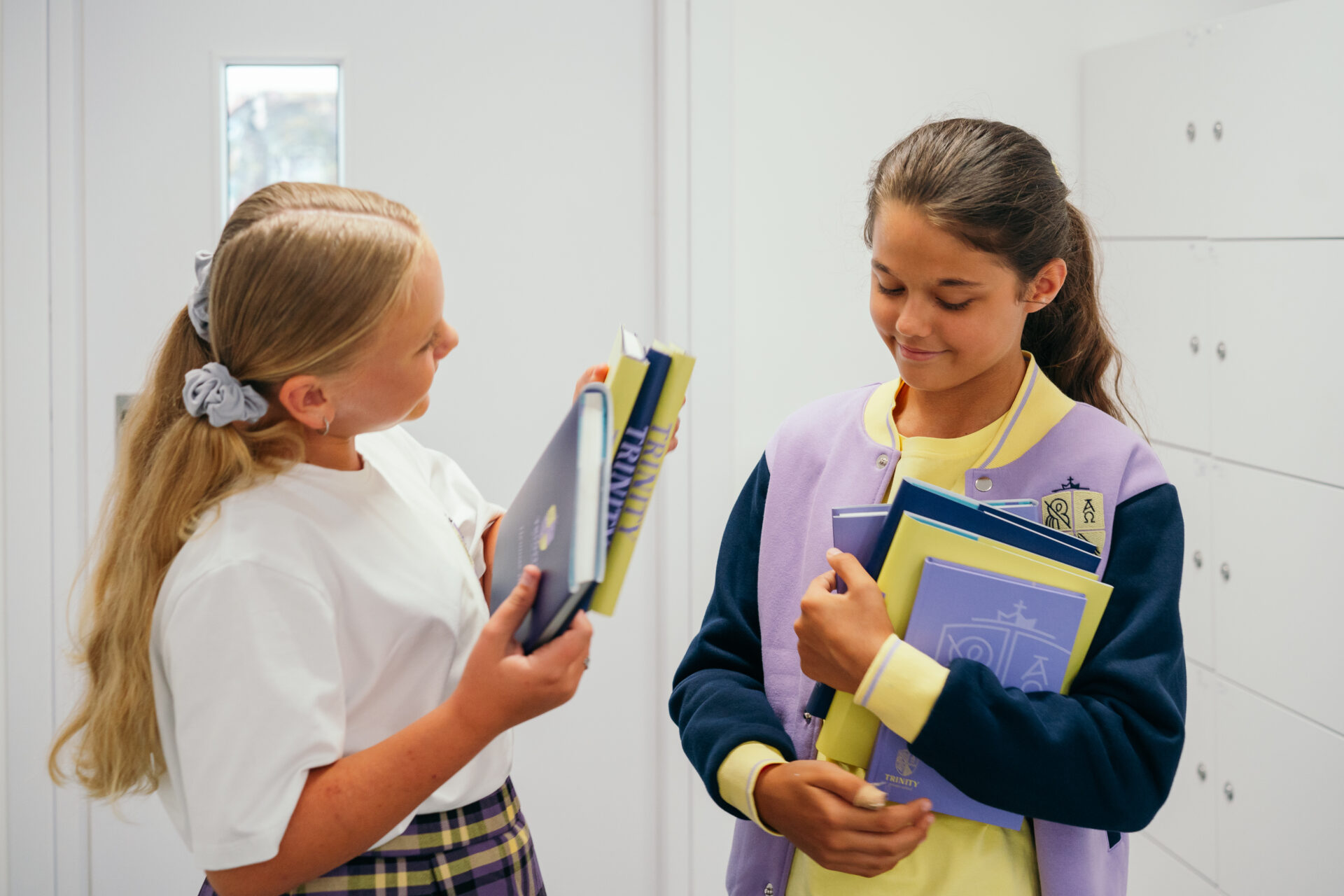

Obtaining a widely recognised school leavers’ certificate is made straightforward by the International Baccalaureate (IB). The IB comprises three programmes, tailored to students of varying age groups. These programmes go far wider than just giving students subject knowledge. They foster the development of critical thinking abilities and encourage the analysis of global challenges to discover optimal solutions. Performing well in the IB Diploma significantly enhances your prospects for admission to prestigious colleges and universities worldwide.
The IB programme focuses on a comprehensive exploration of subjects while nurturing the child's personal development. It is rooted in the traditional core subjects but also places a significant emphasis on language skills and social sciences. Moreover, it encourages the child to cultivate social and leadership skills, participate in creative activities, and acquire effective information use and communication skills.
This individualised approach, paired with innovative teaching methods, enables the complete development of the students’ character, establishing a solid foundation for future professional growth and goal attainment. Below, you'll find descriptions of each educational stage, along with the corresponding age requirements.
The foundation block of an IB education is the PYP (Primary Years Programme). The IB primary cycle serves as a platform for children aged 3-12 to develop a natural curiosity about the world, nurturing their enthusiasm for acquiring new knowledge. This programme revolves around the fundamental concept of exploring global and relevant interdisciplinary subjects. Children are consistently immersed in a dynamic learning journey, where they connect fresh insights with their existing knowledge and tackle intricate real-world challenges.
Adolescents aged 11-16 follow the Middle School Programme (MYP). The programme provides students with fundamental knowledge in core subjects to reinforce information learned earlier. More than 60% of the programme is made up of practical activities (discussions, hypothesis testing, laboratory research), during which children can consolidate the theoretical knowledge they have previously acquired. At the end of the course the students will be ready to enter the final stage of secondary education.
Between the ages of 16 and 19, students embark on preparations for their future academic path and beyond. This programme is tailored to each student's preferences and their chosen field of study, comprising a personalised selection of subjects. It spans two years and includes three compulsory, non-subject specific elements - CAS (Creativity, Activity, Service), the extended essay and TOK (Theory of Knowledge). These three elements make up what is known as the core of the IB Diploma. Students must also study a second modern language or one of the classical languages, such as Latin or Ancient Greek as one of their chosen subjects.
A notable advantage of the IB programme lies in its adaptability and career focus. While TOK (Theory of Knowledge) and CAS (Creativity, Activity, Service) are mandatory components in the DP (Diploma Programme), students also have the flexibility to select six (minimum) subjects, with three of them studied at higher level, and three at standard level. Here's a brief overview of the two levels:
Thanks to this educational structure, a child generally doesn't require additional training to be admitted to their chosen university. Furthermore, the breadth of knowledge studied in the IB Diploma will often allow more choices in university courses than some other, narrower, educational systems.
The programme includes subjects from the following groups:<
Moreover, each student can choose which three of the subjects to study at higher level. Pupils can tailor their course and level selection to align with their personal preferences and the entry requirements of their chosen university programme.
This compulsory element of the IB Diploma comprises three core components:
Every student has the liberty to select the subjects that align with their individual interests and passions. Engaging in charitable activities and projects serves as a means to cultivate a socially responsible character.
In order to successfully complete the full IB Diploma, students are required to undertake externally marked and moderated examinations in their six chosen subjects. Additionally, they must compose an essay on the Theory of Knowledge and complete a 4,000-word extended essay on a topic of their choice. A significant part of the overall assessment involves the creation of a project within the realms of the creativity, activity, and service program. This project should encompass both creative and athletic components, along with a volunteer initiative.
Assessments are conducted at the end of each module, giving students and teachers feedback and facilitating the evaluation of programme effectiveness as well as allowing for adjustments if required. These exams are assessed by teachers, and external examiners may be present during the presentation of diploma projects.
Each course is evaluated based on a point system. Diplomas are awarded to students who fulfil the required minimum criteria.
Public educational institutions often struggle to offer such a comprehensive and effective training programme due to the limitations in providing individualised attention to students and offering a diverse range of elective subjects. This is why an increasing number of parents are opting for private schools, which enable them to establish a strong foundation to ensure success in their children’s future. Specialised programmes like the one described here offer several key advantages:
It's important to note that children can enrol in an IB school at various ages. However, there are also some drawbacks to consider with this type of education:
It's crucial to understand that tuition alone does not guarantee a diploma. Success in the programme necessitates passing exams with the required grades and actively participating in the school's social life and the wider community.
For those interested in learning more and enrolling, scheduling an interview at Trinity School can provide comprehensive answers regarding the learning process and programme. This initial step can set the foundation for a successful future for your children.
Enrollment at school takes place after introductory conversations with students and parents. Book a meeting to learn more about Trinity Private School and discuss the most important thing - the future of your child.
Text our consultant in Telegram